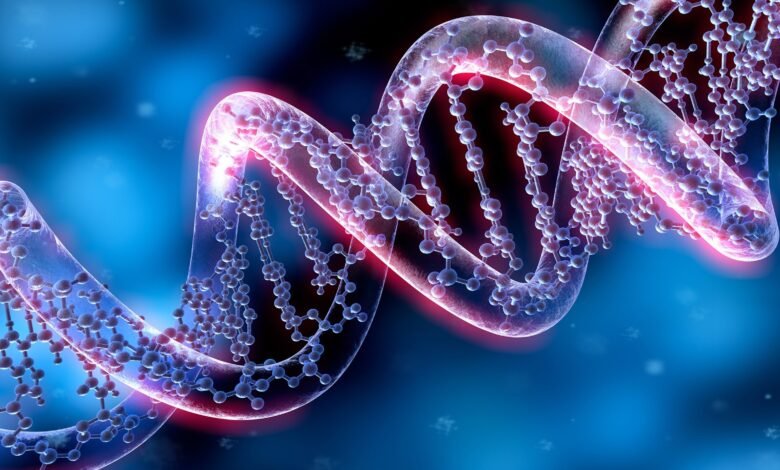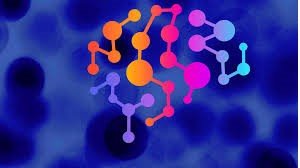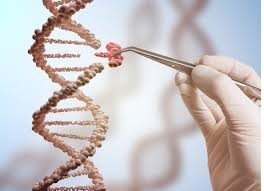How to Develop Personalized Medicine with Genetic Data in 2023

In the realm of healthcare, one size does not fit all. Each person is unique, and their genetic makeup plays a crucial role in determining their response to medical treatments. This is where personalized medicine comes into play. Personalized medicine tailors medical decisions, practices, and interventions to the individual patient by using genetic data. In this Article, we will explore how to develop personalized medicine with genetic data, its potential, the ethical considerations, and much more.
The Power of Genetic Data

Genetic data, also known as genomic data, contains a wealth of information about an individual’s genetic makeup. The human genome consists of over 3 billion DNA base pairs, and this information can be harnessed to understand a person’s susceptibility to diseases, their response to medications, and more. But how do we turn this raw genetic data into personalized medicine?
Data Collection and Sequencing
The first step in developing personalized medicine is collecting genetic data. This is typically done through techniques like DNA sequencing. The genetic material is extracted, processed, and then sequenced to determine the order of the DNA base pairs. Advanced technologies like Next-Generation Sequencing (NGS) have revolutionized this process, making it faster and more cost-effective.
Positive Sentiment:
NGS has accelerated the pace of genetic data collection, allowing us to gather more information efficiently.
Negative Sentiment
However, concerns about data privacy and security have arisen due to the massive amount of genetic data being generated.
Data Analysis and Interpretation
Once genetic data is collected, the next step is data analysis and interpretation. This involves identifying genetic variations, mutations, and other relevant information. Sophisticated algorithms and bioinformatics tools are used to make sense of this vast amount of data.
Positive Sentiment
Data analysis tools have become increasingly accurate and sophisticated, enabling us to identify rare genetic mutations that were previously undetectable.
Negative Sentiment
However, the complexity of genomic data can lead to challenges in interpretation, and false positives/negatives can occur.
Identifying Genetic Markers
One of the key goals in developing personalized medicine is identifying genetic markers associated with specific diseases or drug responses. These markers are like signposts in the genome that can guide treatment decisions.
Positive Sentiment
Identifying genetic markers allows for targeted therapies that can significantly improve treatment outcomes.
Negative Sentiment
Not all diseases have clear genetic markers, and research is ongoing in many areas.
Future of Personalized Medicine with Genetic Data

The future of personalized medicine with genetic data in 2023 is likely to be marked by significant advancements and growing integration of genetics into healthcare. Here are some key trends and developments you can expect:
Widespread Genetic Testing
Genetic testing will become more accessible and affordable, leading to an increase in the number of individuals getting their DNA sequenced. This will provide a wealth of genetic data for healthcare professionals to work with.
Risk Assessment and Disease Prediction
Genetic data will be used to assess an individual’s risk for various diseases. Healthcare providers will have better tools to predict diseases like cancer, heart disease, and diabetes, allowing for early intervention and prevention strategies.
Pharmacogenomics
Pharmacogenomic testing will become more common, helping doctors tailor medication prescriptions based on a patient’s genetic profile. This will reduce the risk of adverse drug reactions and optimize treatment efficacy.
Targeted Therapies
Genetic information will play a crucial role in the development of targeted therapies for various diseases. These therapies will be designed to work specifically for individuals with certain genetic mutations, improving treatment outcomes.
Cancer Treatment
Personalized medicine will continue to transform cancer treatment. Genetic profiling of tumors will guide the selection of the most effective therapies, and immunotherapies will be further customized based on the patient’s immune system and genetic makeup.
Preventive Medicine
Genetic data will enable more precise preventive measures. Individuals will receive tailored lifestyle recommendations and screening schedules based on their genetic predispositions.
Data Privacy and Ethics
As the amount of genetic data collected increases, ensuring data privacy and ethical handling of genetic information will become more important. Stricter regulations and guidelines may be implemented to protect individuals’ genetic privacy.
AI and Machine Learning
Artificial intelligence and machine learning algorithms will be used to analyze vast amounts of genetic data quickly and accurately. These technologies will assist in identifying patterns, predicting diseases, and suggesting personalized treatment options.
Telemedicine and Remote Monitoring
With the advancement of technology, remote monitoring of individuals with genetic predispositions to certain diseases will become more prevalent. Telemedicine will facilitate ongoing care and support for patients.
Patient Education
Patient education will be a key component of personalized medicine. People will need to understand their genetic data and its implications for their health, leading to increased genetic literacy among the general population.
Collaboration and Research
The healthcare industry will continue to collaborate with research institutions and pharmaceutical companies to advance personalized medicine. This collaboration will drive the development of new treatments and therapies.
Integration into Electronic Health Records
Genetic data will be seamlessly integrated into electronic health records, providing a comprehensive view of a patient’s medical history and genetic profile for healthcare providers
Tailoring Treatment Plans
With genetic data in hand, healthcare providers can create personalized treatment plans for their patients. For example, a cancer patient’s genetic profile may reveal which chemotherapy drugs are most likely to be effective while minimizing side effects.
Positive Sentiment
Personalized treatment plans can lead to more effective and less invasive treatments, improving the quality of life for patients.
Negative Sentiment
Developing personalized treatment plans can be time-consuming and expensive, limiting access for some individuals.
Ethical Considerations
The use of genetic data in personalized medicine raises important ethical questions. Issues such as data privacy, consent, and potential misuse of genetic information must be carefully addressed.
Positive Sentiment
Ethical guidelines and regulations have been developed to protect the privacy and rights of individuals.
Negative Sentiment
However, these guidelines may not be universally followed, and breaches of data privacy have occurred.
Challenges and Future Directions
While personalized medicine holds great promise, it is not without its challenges. These include the high cost of genetic testing, limited access to genetic data, and the need for more research to understand the genetic basis of various diseases.
Positive Sentiment
Advances in technology are driving down the cost of genetic testing, making it more accessible to a broader population.
Negative Sentiment

There is still much work to be done to address healthcare disparities and ensure that personalized medicine benefits all individual
Conclusion
In conclusion, personalized medicine is a transformative approach that harnesses the power of genetic data to tailor medical treatments to individual patients. While it holds immense promise for improving healthcare, it also presents challenges related to data privacy, integration, and ethics. As technology continues to advance and our understanding of genetics deepens, personalized medicine is poised to become a cornerstone of 21st-century healthcare, revolutionizing how we prevent, diagnose, and treat diseases.
Read more : How to Implement Mind-Machine Interfaces for Improved Communication in 2023
FAQs(Medicine)
What are the benefits of personalized medicine?
Personalized medicine can improve treatment outcomes, minimize adverse effects, and enhance patient quality of life.
How is genetic data collected?
Genetic data is collected through DNA sequencing, genomic profiling, transcriptomics, and clinical data integration.
Can personalized medicine prevent diseases?
Yes, by identifying genetic predispositions, personalized medicine can enable early intervention and preventive measures.
Is personalized medicine available to everyone?
Access to personalized medicine can be limited by cost, but efforts are underway to make it more widely available.
Are there risks associated with sharing genetic data?
Yes, sharing genetic data carries privacy risks, and robust data protection measures are essential.
Read more : How to Develop and Use Quantum Sensors for Medicine in 2023








2 Comments